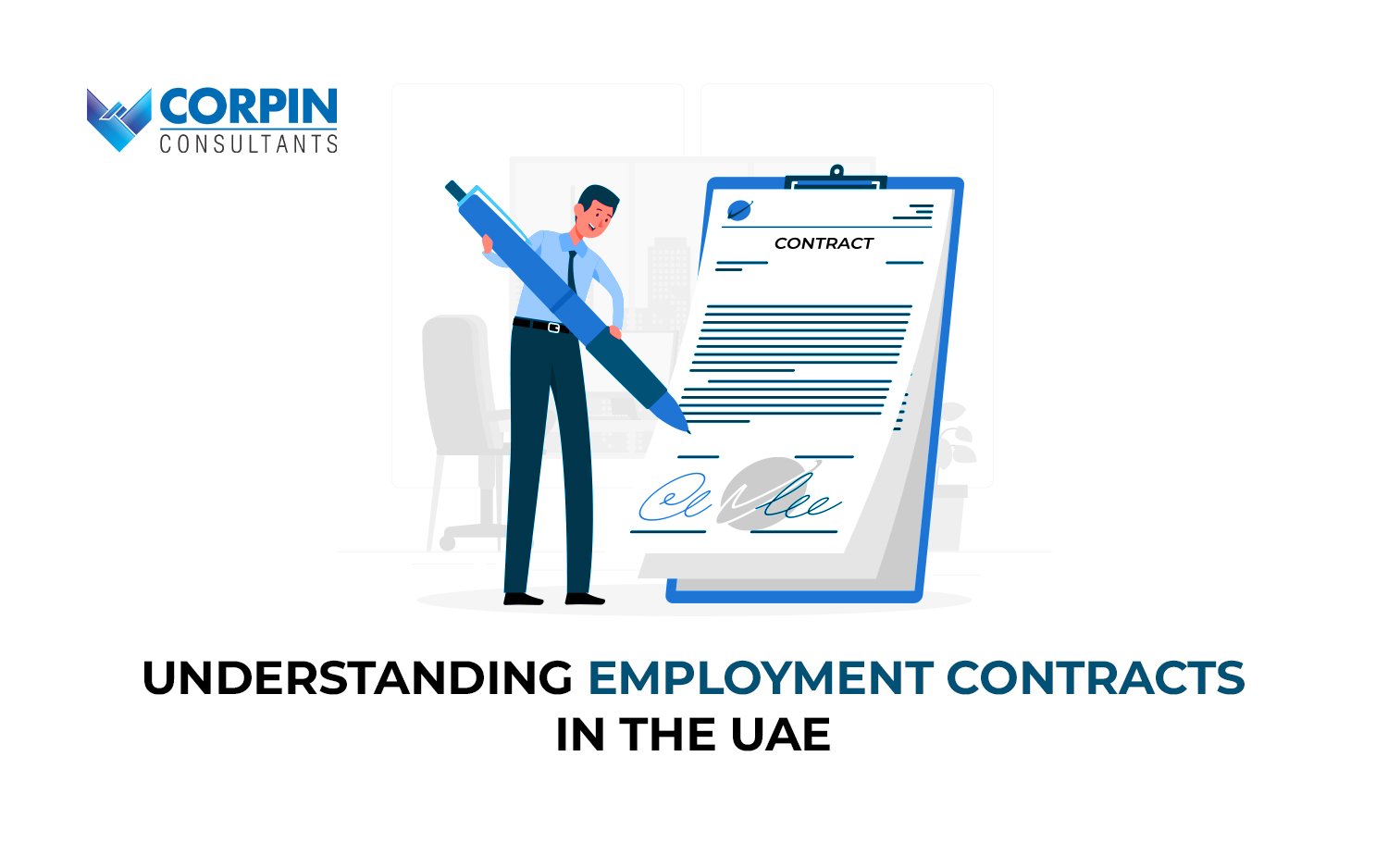In this diverse and dynamic nation, grasping the intricacies of employment contracts becomes paramount for employers and employees alike. These legally binding agreements serve as the backbone of a harmonious and compliant work environment.
In this blog, you will gain valuable insights into the UAE’s employment contracts landscape for developing successful employer-employee relationships.
What is an Employment Contract?
An employment contract serves as a legally binding pact between an employer and an employee. It outlines the terms and conditions that govern their professional association. It serves as a foundation that establishes clear rights, roles, responsibilities, and expectations for both parties.
The employment contract is drafted to not only protect the rights of the employees but also provide a framework for the employer to define the scope of work, compensation, benefits, working hours, and other essential aspects of employment.
Employment law in the UAE
According to the new UAE Labour Law, which took effect in February 2022, all employees working in the private sector (excluding the DIFC and ADGM) are required to be employed on fixed-term contracts. Employers were required to transition their employees onto the appropriate fixed-term contracts until February 1, 2023.
Initially, the new law imposed a maximum cap of 3 years on the duration of fixed-term contracts. However, in October 2022, this restriction was removed, allowing parties to agree on the duration of the fixed-term as they think fit, while still maintaining the requirement for a fixed-term contract.
The removal of the maximum cap, combined with the provision that either party has the right to terminate the employment contract before its expiry, has rendered the fixed-term aspect of the contract largely inconsequential. For instance, if the parties agree on a 5-year fixed-term contract, it essentially functions as a permanent employment contract.
These updates in the UAE Labour Law aim to provide more flexibility and adaptability to employers and employees in structuring their working relationships. Employers and individuals need to understand and comply with the regulations and provisions outlined in the new law to ensure legal compliance and uphold the rights and obligations of both parties involved.
Six Job Models:
The introduction of six job models under the new regulations empowers employees with greater flexibility. It allows employers to tap into diverse talents and competencies at reduced operational costs.
Employees are permitted to do multiple job models as long as their total working hours do not exceed 48 hours per week or 144 hours over three weeks.
This means that full-time employees can also take on part-time positions without seeking permission from their primary employers, as long as they stay within the prescribed hour limits.
The option of remote work enables both full-time and part-time employees to carry out their duties either entirely or partially outside of the traditional office setting.
Under the shared job model, job responsibilities and compensation are divided among multiple employees, based on agreements with the employer. These employees’ contracts are governed by the regulations applicable to part-time jobs.
Full-time employment involves working for a single employer on a full work-day basis, while part-time employment allows individuals to work for one or more employers for a specified number of hours or days.
Temporary contracts can be either for a specific period or project-based, terminating upon the completion of the assigned job.
The flexible job model provides employees with the freedom to work at various times based on the job’s conditions and requirements.
Contract Termination
The contract encompasses the specified hours, days, and duties required for the position. These diverse job models promote a more agile and adaptable workforce, granting employees and employers more options to structure their working arrangements according to their specific requirements and preferences.
According to the UAE’s new labour law, either party involved in the employment contract has the right to terminate it, provided that they adhere to certain conditions. This includes serving the required notice period and complying with all other legal obligations and consequences associated with the termination.
By implementing these provisions, the UAE aims to maintain transparency and uphold the rights of both employers and employees during the termination process.
Stay Compliant with UAE Employment Laws with Corpin Consultants
If you have any inquiries regarding employment laws in the UAE, don’t hesitate to reach out to Corpin Consultants for a comprehensive consultation. Our goal is to help your company stay compliant with the legislation.
At Corpin Consultants, we prioritize staying up-to-date with the latest legislative requirements. Our dedicated team closely monitors any upcoming developments or recommendations to ensure that our clients are well-informed and prepared.
If you have any questions or need assistance, please don’t hesitate to call Ebi Kadavan at +971 55 843 2911, or you can email us at info@corpinconsultants.com to schedule a meeting.



 Book your Free Consultation
Book your Free Consultation